April 26, 2025 | 22:17 GMT +7
April 26, 2025 | 22:17 GMT +7
Hotline: 0913.378.918
April 26, 2025 | 22:17 GMT +7
Hotline: 0913.378.918
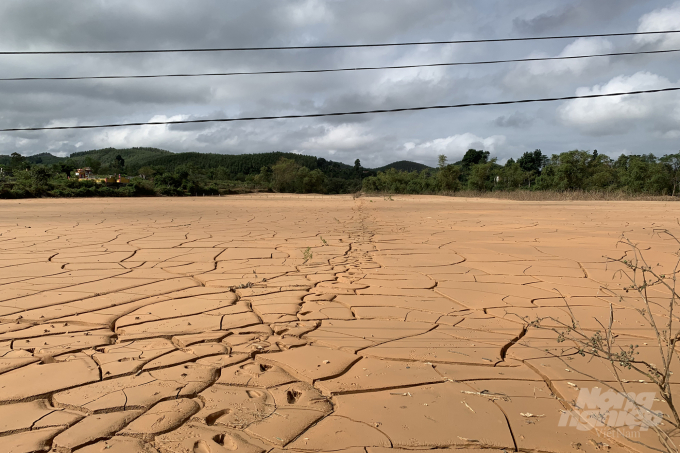
Farming soil is buried under layers of mud in Hung Trach Commune in Quang Binh Province’s o Trach District. Photo courtesy of Vietnam Academy of Agricultural Sciences.
Recent floods in central provinces buried over 3,000 ha of farming soil, according to initial reports by scientists from Vietnam Academy of Agriculture Sciences.
Over the last few days, the scientists arrived in flood-hit provinces including Thua Thien –Hue, Quang Tri, Quang Binh and Ha Tinh to examine and evaluate damages that the recent floods caused to the provinces’ farming soil.
They visited Trieu Nguyen Commune in Quang Tri Province’s Dak Rong District, Trieu Giang Commune in Quang Tri Province’s Trieu Phong District, Hai Le Commune in Quang Tri Town, Hung Trach Commune in Quang Binh Province’s o Trach District and Ky Thuong Commune in Ha Tinh Province’s Ky Anh District.
Of the total reported damaged area, about 1,500 ha of farming land in the central province of Quang Trị is buried under mud.
According to the scientists, damaged farming soil in the central provinces could be classified into four groups which required different solutions to restore the soil and resume agriculture production.
The first soil group is the farming soil which is buried under 50-100 cm, and argil layer on the surface is 0-15 cm thick, the organic layer also contains sand and argil. This kind of soil is seen in Trieu Phong Commune.
Scientists recommended to clear up the surface layer, fertilise much organic fertiliser and flow carefully. This soil should be used to grow corn, potato and kinds of beans.
The second soil group is the farming soil which is buried under 20-50 cm by fine sand, for example, the soil in Trieu Giang Commune.
If the affected area is not large and farmers wanted to continue growing rice there, they should remove the sand layer. If the sand layer is less than 10 cm thick, it is not necessary to remove but level it.
To large-scale affected area with thick sand layer, the soil is not suitable for rice farming any more. Scientists recommended farmers to shift to corn, potato and beans. Deep ploughing and more organic fertiliser are needed.
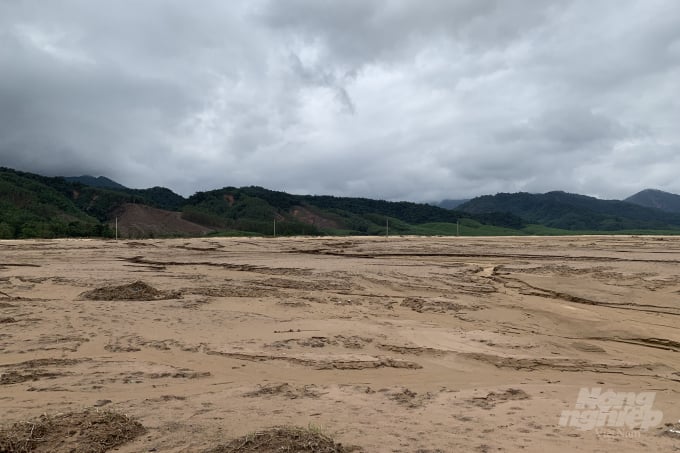
Mud covers farming land in Trieu Nguyen Commune in Quang Tri Province’s Dak Rong District. Photo courtesy of Vietnam Academy of Agricultural Sciences.
The third soil group is the farming land which is buried under more than 50 cm mostly by argil like the farming land in Hung Trach Commune, Bo Trach District.
Before re-growing crops on such soil, it is necessary to add lime and organic fertilisers.
The fourth soil group is the farming land which is buried under coarse sand and gravel like those seen in Ky Thuong Commune, Ky Anh District.
This soil could be used for cultivation again if the coarse sand and gravel are removed, scientists said.
Since October 6th, central Viet Nam has been impacted by a series of successive intense storms, cyclones, and record-level floods. More than 230 people have been reported dead or missing. At least 380,000 houses have been flooded, damaged, or destroyed.
According to the Ministry of Agriculture and Rural Development, natural disasters last month caused an initial loss of over VND 2.8 trillion.
To resume agriculture production, the central flood-hit provinces need 5,600 tonnes of rice seeds, 225 tonnes of corn seeds, 44.2 tonnes of vegetable seeds, 560,000 vaccine doses and 140,000 litres and 105 tonnes of disinfectant chemicals.
Translated by Anh Nguyen Edited by Duc Huy
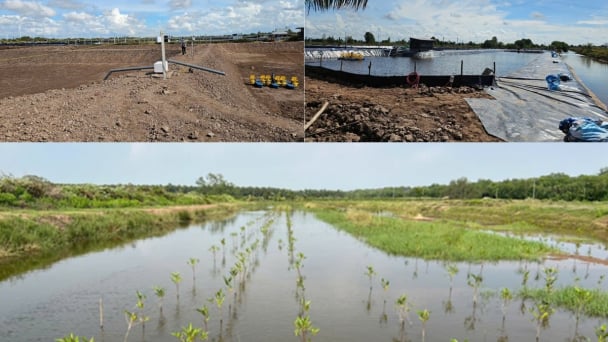
(VAN) Coastal seawater in the Mekong Delta is considered to be of good quality and could be studied for use in aquaculture, with wastewater potentially reused for forest planting.
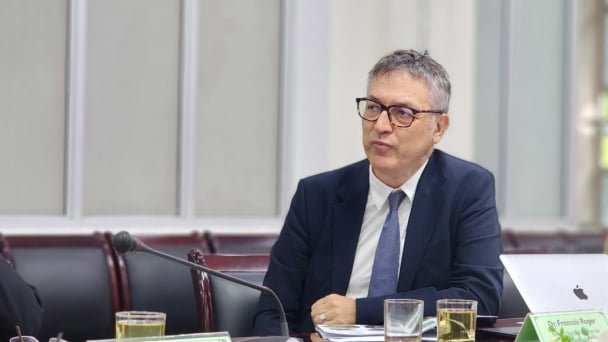
(VAN) By keeping communities up-to-date, VAN News fosters inclusive dialogue, brings visibility to local knowledge and initiatives, and creates a sense of shared ownership over the transition across multiple levels of stakeholders.

(VAN) On the occasion of the first issue of Vietnam Agriculture and Nature News following its merger, Deputy Minister of Agriculture and Environment Phung Duc Tien shared his view.
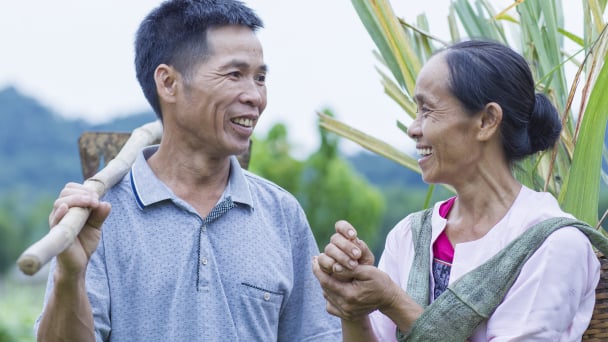
(VAN) The collaboration among press, science, and policy is creating favorable conditions for the adoption of nature-based agricultural solutions and development of sustainable livelihoods.
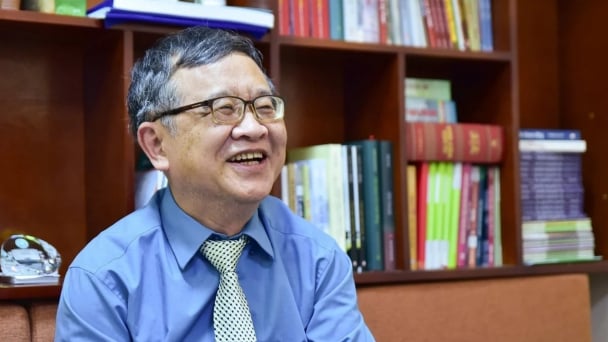
(VAN) ‘Each journalist at VAN News will continue to be a secretary of the times, full of passion, enthusiasm, and responsibility for their pen,’ said former Deputy Editor-in-Chief of the Vietnam Agriculture Newspaper.
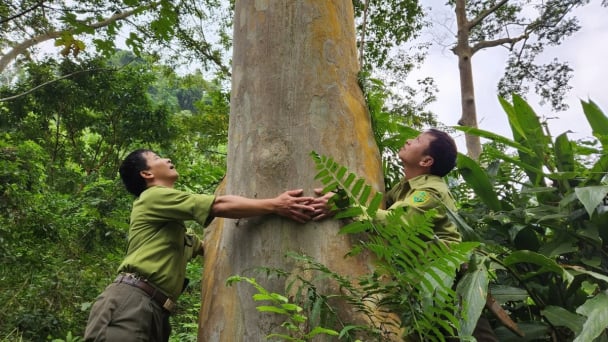
(VAN) Xuan Lien National Park is not only the 'green treasure' of Thanh Hoa but also of the entire country.

(VAN) The Office of Global Change was notified Thursday that it would be shuttered.